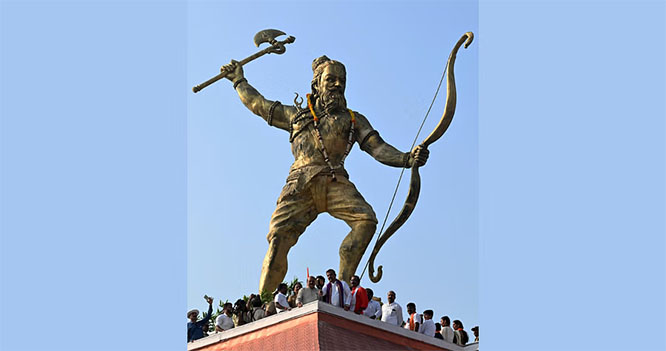New York, Feb 20: Facebook has bought messaging app WhatsApp in a deal worth a total of $19bn (£11.4bn) in cash and shares.
It is the social networking giant's biggest acquisition to date.

WhatsApp has over 450 million monthly users and is popular with people looking to avoid text messaging charges.
In a statement announcing the deal, Facebook founder Mark Zuckerberg described WhatsApp's services as "incredibly valuable".
WhatsApp allows users to send messages over internet connections, avoiding text messaging fees. The company claims it is currently registering one million new users a day.
It makes money by charging users a subscription fee of $1 per year, although it offers a free model as well.
The deal gives Facebook access to the 450m people who use WhatsApp's service every month, effectively turning one of its biggest potential threats into a valuable ally.
It will also help Facebook cement its position at the heart of users' lives, and will reinforce its standing with younger users, who have been drifting away from the social network in favour of WhatsApp and other instant messaging services.
Mark Zuckerberg, Facebook's founder and chief executive, said the two companies would work together “to make the world more open and connected”. “WhatsApp is on a path to connect 1bn people. The services that reach that milestone are all incredibly valuable.”
Jan Koum, the Ukranian chief executive and co-founder of WhatsApp, added that he was “excited and honoured” to be joining Facebook. "WhatsApp's extremely high user engagement and rapid growth are driven by the simple, powerful and instantaneous messaging capabilities we provide.”
The two men have known each other for years, but only began discussing the deal 12 days ago. The settled it for $19bn, including $4bn in cash, $12bn in Facebook shares and $3bn in restricted stock awards for WhatsApp's founders and employees.
Facebook has also agreed to pay WhatsApp a $2bn break free - half in cash, half in shares - if the deal falls foul of regulatory hurdles. Mr Koum, who co-founded the company with Brian Acton, whom he met when they were both working at Yahoo!, will join the Facebook board.
Mr Zuckerberg said Facebook would allow WhatsApp to continue operating as an independent service, in much the same way it has done with Instagram, the photo messaging service it bought for $1bn in 2012.
He added that Facebook would allow WhatsApp to focus on growing its user base, rather than squeezing money out of its existing subscribers. At the moment, the company makes money from the 99 cent fee it charges users who want to download its app, and a subsequent 99 cent-a-year usage fee.
The deal immediately raised fears that Facebook would introduce adverts to WhatsApp, but Mr Zuckerberg said on Wednesday evening that he does not "personally think ads are the right way to monetize messaging systems”.
The deal comes as a major blow to Google, which reportedly made a $1bn bid for WhatsApp last year.
It also casts Facebook's previous transactions in a new light. Analysts were stunned when the social network paid as much as $1bn for Instagram, but that figure is dwarfed by the sum it has paid for WhatsApp.
Shares in Facebook fell 5pc in after-hours trading in New York, amid fears that the company had overpaid.
However, the news gave a 7pc boost to BlackBerry shares, as investors bet on Google, or another of Facebook's competitors, trying to buy its valuable BBM instant messaging service.







Comments
Add new comment